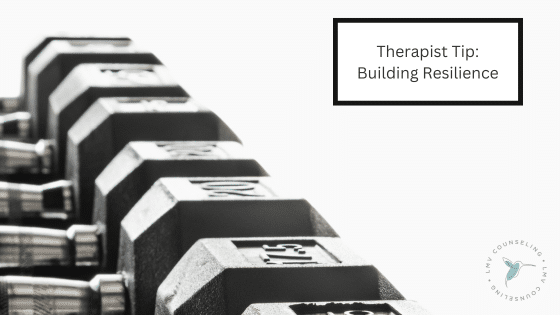Resilience is the key to handling life’s challenges. It’s the ability to bounce back after tough times and keep moving forward despite difficulties. Some people are naturally more resilient, while others need to build this skill over time. In this blog, we’ll explore what contributes to resiliency and simple, daily practices that can help you strengthen your ability to bounce back.
What Is Resilience and Why Is It Important for Mental Health?
Resilience is more than just being tough. It’s our ability to adapt to stress and hardship and still keep going. It helps us maintain mental well-being even when life feels overwhelming. Building resilience is crucial because it allows us to manage stress, recover from setbacks, and maintain positive relationships
Types of Resilience: Psychological and Ego Resilience Explained
There are two main types of resiliency:
- Psychological Resilience: This is the ability to adapt and maintain mental health despite facing challenges. Many people, even after dealing with adversity, can still live well.
- Ego Resilience: This refers to a person’s ability to remain flexible and handle the ups and downs that life throws at them. It’s about being adaptable and maintaining a sense of calm in difficult situations.
Personality Traits That Impact Resilience
Certain personality traits can make it easier for people to be resilient. These traits are part of what psychologists call the “Big Five” personality factors:
- Neuroticism (tendency to experience negative emotions) is often linked with lower resilience.
- Extraversion (outgoing, energetic) and Openness (being open to new experiences) are often associated with higher resilience.
- Agreeableness (being cooperative and compassionate) and Conscientiousness (being organized and dependable) also play important roles.
While these traits can impact how easily someone bounces back from setbacks, resilience can still be developed by anyone—regardless of personality type.
 5 Practical Tips for a Stronger Mind
5 Practical Tips for a Stronger Mind
If you weren’t born naturally high in traits like agreeableness or openness, don’t worry! There are still plenty of ways to build resilience. Here are five steps you can take today:
- Grow and Foster a Support Network: Research shows that the quality of our relationships is the biggest predictor of life satisfaction. Strong, supportive relationships act as a buffer during tough times. Take the time to nurture these connections, and when life gets hard, lean on your support system. It’s okay to be vulnerable and share your struggles—it can help you feel less alone and more resilient.
- Remember: “This Too Shall Pass”: During stressful situations, it’s easy to feel overwhelmed. However, it’s important to remind yourself that stress is temporary. Emotions like sadness, anger, and frustration ebb and flow. When things feel unbearable, practice saying, “This too shall pass.” Over time, this mindset will make stress more manageable and help you feel more in control.
- Accept Change as Inevitable: Life is full of changes, whether big or small. Learning to accept change, rather than resist it, is crucial for building resilience. For example, if your plans for the day get disrupted, instead of getting frustrated, try to adapt. Accepting change helps free up your energy to focus on things you can control, making life’s challenges less daunting.
- Practice Optimism: Optimism doesn’t come naturally to everyone, but it’s a skill that can be developed. When facing adversity, try to imagine a positive outcome or identify one good thing in the situation. You might not have all the answers in the moment, but trusting that things will work out is a big part of being resilient. Try writing down one positive thing each day to train your brain to focus on hope.
- Inject Laughter and Humor: Laughter is a powerful tool for resilience. It helps us cope with stressful situations and even bonds us closer to others. If you can, find humor in the tough moments, or take a break by watching a funny show or talking to a friend who can lighten the mood. Even unrelated laughter can improve your overall emotional state and make tough times feel more manageable.
Coping with Change: Why Flexibility Matters
Change is an inevitable part of life. The better you get at adapting, the more resilient you become. Being open to changes, even small ones, can make you stronger in the face of life’s bigger challenges. Practice  flexibility in everyday situations, like handling last-minute schedule changes or unexpected disruptions, to train your mind to adapt.
flexibility in everyday situations, like handling last-minute schedule changes or unexpected disruptions, to train your mind to adapt.
Resilience is about bouncing back from life’s challenges with strength and hope. By focusing on building a strong support network, practicing optimism, accepting change, and even finding humor in tough times, you can actively build your resilience. Remember, it’s not about never feeling stressed, but rather learning how to cope and adapt.
Our therapists at LMV Counseling are here to help you strengthen your ability to handle life’s challenges. If you’re ready to get started, book an appointment with one of our therapists today.

